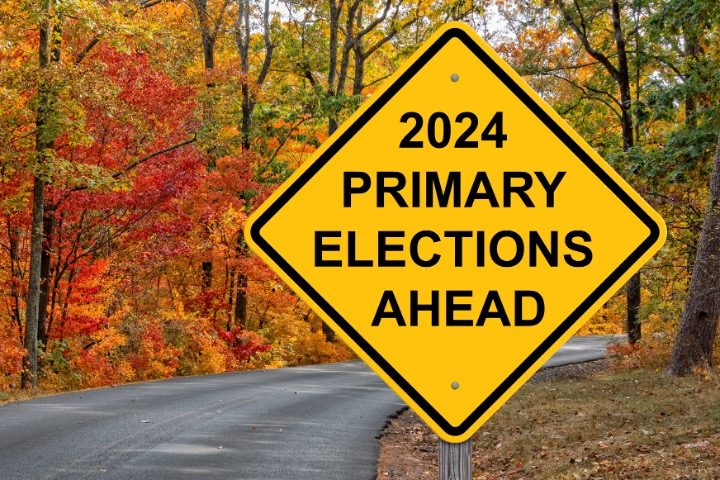
Two candidates have emerged as the top alternatives to Donald Trump in the GOP presidential primary race, and they’re now engaged in a heated contest against each other for donor cash.
As detailed in a report from Politico that quoted individuals present at a recent Republican donor gathering, the teams for Florida Gov. Ron DeSantis and former UN Ambassador Nikki Haley spoke to the donors and made their respective candidates’ cases as being the most viable non-Trump contender — while also taking jabs at one another.
The DeSantis people argued that Haley cannot beat Trump in a head-to-head match. The Haley team asserted that DeSantis has flatlined, while Haley — per their private polling — is on the ascendant and ahead of the Florida governor in key early voting states. The Haley team also said their boss has more cash on hand in her campaign, whereas DeSantis is relying heavily on third-party expenditures via super PACs for his messaging.
“By every metric, Nikki is moving up and Ron is moving down,” said a representative for Haley. “It IS a two person race: one man and one woman.”
Among the megadonors present at the event and listening to the presentations were hedge-fund billionaire Paul Singer and investor Ken Griffin, two of the biggest givers in GOP politics. The conference, which took place in Dallas, was hosted by real estate developer Harlan Crow out of a desire to thin the primary herd by finding someone behind whom the anti-Trump crowd can coalesce.
Members of Team Haley who were present included campaign manager Betsy Ankney and senior adviser Jon Lerner. DeSantis was represented by senior adviser Ryan Tyson and campaign manager James Uthmeier, among others.
Representatives for Sen. Tim Scott (S.C.) were later brought in, although only DeSantis and Haley staffers had been invited initially.
DeSantis’ people made the case that the governor is the candidate best positioned to take on the 45th president. As Politico reports:
… 90 percent of current DeSantis supporters would ultimately vote for Trump should he drop out, whereas Haley’s voters would disperse to other non-Trump candidates, namely DeSantis. That dynamic, they added, meant that the Florida governor was the one non-Trump candidate who could keep the former president’s vote share down in a primary. The DeSantis officials argued that Haley would ultimately lose a head-to-head contest with Trump by a 70-30 margin.
They also argued that DeSantis besting Trump in the Iowa caucus would provide a chink in the former president’s political armor. And they contended that the proof of their continued viability was evident by the fact that Trump’s team has continued to attack DeSantis, despite his diminished standing in the race. The former president in recent weeks has also begun to attack Haley — the former South Carolina governor — and has coined a nickname for her, “Birdbrain.”
The donor class has largely gravitated away from Trump. For example, donors in the energy industry, once a notable part of Trump’s financial support, are flocking to his competitors in the GOP primary, and a number of industry titans have donated to various candidates in the field. Harold Hamm, an oil and gas magnate, for instance, has thus far donated to both DeSantis and Haley.
Kelly Craft, who served as UN Ambassador under Trump (after Nikki Haley), and her coal-executive husband, Joe Craft, have not given any money to Trump in this cycle — but they have donated to DeSantis, former Vice President Mike Pence, businessman Vivek Ramaswamy, and even former New Jersey Gov. Chris Christie.
Several big donors have reportedly set their sights on Haley, as DeSantis’ campaign has floundered in the polls.
But, as The New American previously reported, a number of top donors have given up hope that someone other than Trump has a realistic chance at winning the GOP nomination — and are consequently pulling out their fundraising dollars.
A look at Federal Election Commission filings related to Republican Super PACs reveals that through the end of June, only 66 individual donors made contributions of $250,000 or more. That’s a 24-percent decline from the same period in 2016, when 87 donors had given $250,000 or more to the Super PACs of one of the candidates.
While this depletion of big-donor money is proving detrimental to the candidacies of many of the GOP contenders, it is having no ill effect on front-runner Donald Trump. While he has received few major donations this year, the 45th president has hauled in major money from small-dollar donations. Through the end of June, Trump’s joint fundraising committee had raised $23.7 million from donors giving less than $200, which is more than twice the grassroots contributions to all the other Republican candidates combined.
Primary season is far from over, meaning there are likely many twists and turns still to come. The question is whether it will matter in the end whom the megadonors settle on, be it DeSantis, Haley, or another non-Trump candidate. Is Donald Trump’s hold over the GOP simply too strong for any other Republican contender to overcome?



